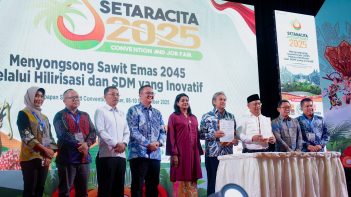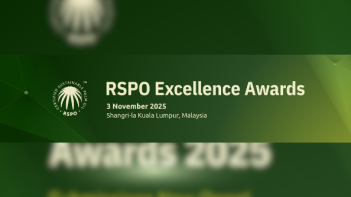Acknowledging that 100% Certified Sustainable Palm Oil (CSPO) production can only be obtained through strong and robust certification schemes such as Segregated (SG) or Identity Preserved (IP) supply chain models, the Mass Balance (MB) model is thereby a good alternative and more affordable way to scale up sustainability.
The MB model allows for mixing of RSPO and non-RSPO certified palm oil at any stage in the supply chain, provided that the overall site quantities are controlled. It currently remains an important part of the volumes of CSPO sold on the market.
With a final target of shifting the industry to physical certification as the most direct and efficient scheme to achieve control over the supply chain, RSPO aims to enhance the robustness of the MB model, both at the plantation and supply chain level, recognising its role as an intermediary way to drive overall industry uptake of CSPO.
As an initial phase, the Secretariat is inviting RSPO members and stakeholders to share their views on the current RSPO Mass Balance model, its associated challenges and opportunities for improvement.
We encourage you to share your views by participating in a short SURVEY (10-15 minutes), and submit it at the latest by 5pm (MYT/ GMT + 8) 8 August 2022:
Keep reading

RSPO x JaSPON Conference and Member Engagement Forum 2025 Spotlights Japan’s Sustainability Success and Market Growth
Call for Expression of Interest: Independent Investigation of a Complaint
Call for Expression of Interest: Mexico National Interpretation Task Force for 2024 RSPO Principles and Criteria (RSPO P&C) and Independent Smallholder (ISH) Standard

RSPO–APKASINDO Partnership to Boost Inclusive Growth, Certification, and Market Access for Oil Palm Smallholders

Open Letter to COP30 President: Integrating Forests and Biodiversity: A Policy Central to Paris Agreement Success

Bridging the Auditing Divide: Key Takeaways from the RSPO Assurance Forum 11

Extension of RSPO Excellence Awards 2025 Submission Deadline!





